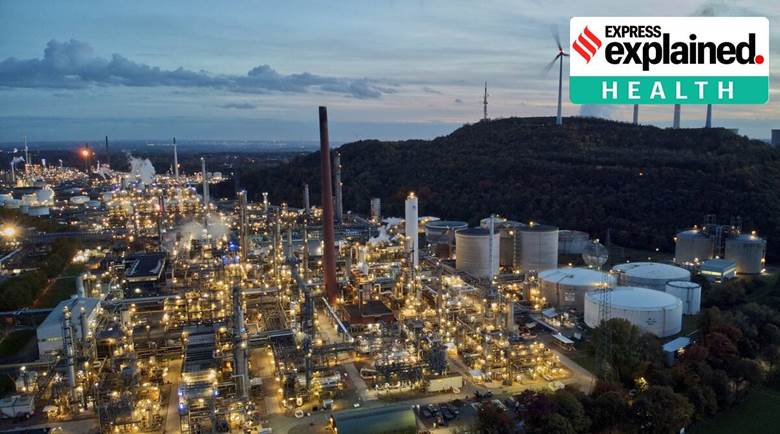Description

Disclaimer: Copyright infringement not intended.
Context: Ahead of this year’s United Nations climate change conference (COP27), a major new report has said that the continued dependence on fossil fuels is compounding the health impacts of the multiple crises the world is facing — including the fallouts of the pandemic, the Ukraine war, the cost of living crisis, and climate change.
Details:
- New findings presented in the seventh annual global report of the Lancet Countdown on Health and Climate Change reveal that governments and companies continue to follow strategies that increasingly threaten the health and survival of all people alive today, and of future generations.
- According to a fact sheet on the specific impacts on India — which uses data from the report but is not itself a part of the report — climate change is affecting almost every pillar of food security:
- The duration of the growth season for maize has decreased by 2%, compared to a 1981-2010 baseline, while rice and winter wheat have each decreased by 1%.
- From 2012-2021, infants under one year old experienced an average of 72 million more person-days of heatwaves per year, compared to 1985-2005.
- For the same period, adults over 65 experienced 301 million more person-days.
- This means that, on average, from 2012-2021, each infant experienced an additional 0.9 heatwave days per year while adults over 65 experienced an additional 3.7 per person, compared to 1986-2021.
- From 2000-2004 to 2017-2021, heat-related deaths increased by 55% in India.
- In 2021, Indians lost 167.2 billion potential labour hours due to heat exposure with income losses equivalent to about 5.4% of national GDP.
- From 1951-1960 to 2012-2021, the number of months suitable for dengue transmission by Aedes aegypti rose by 1.69%, reaching 5.6 months each year.
- An estimated over 3,30,000 people died in India due to exposure to particulate matter from fossil fuel combustion in 2020.
- Among other findings in the report, 45% of urban centres in India are classified as moderately green or above.
- Warning that governments are not focusing on the issue as much as required, it said that in 2019, India had a net negative carbon price, indicating that the government was effectively subsidising fossil fuels.

https://epaper.thehindu.com/Home/ShareArticle?OrgId=GTSAEF14D.1&imageview=0















